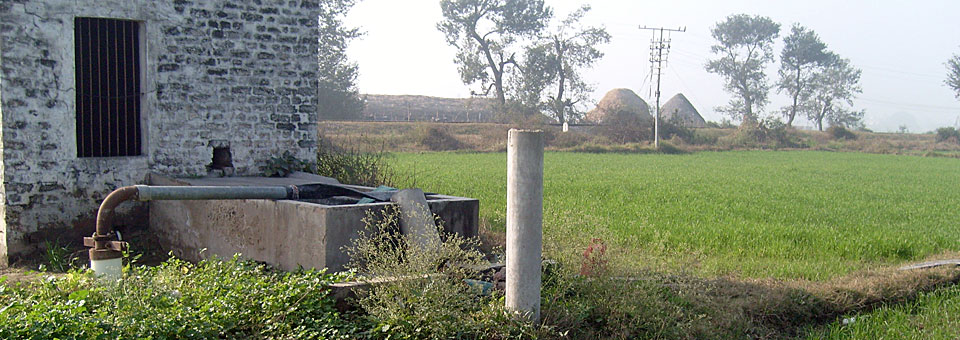A recent agrarian survey conducted by the state of Punjab through three of the main universities – Punjab Agricultural University, Ludhiana; Punjabi University, Patiala; and Guru Nanak Dev University, Amritsar; – has concluded with a report covering a ten year period from 2000-2010. This survey is about the pitiable economic status of farmers in Punjab which has resulted in more than 5000 suicides in that time period. Most of the farmers who committed suicide fell in the prime of their youth, between 20 and 30 years of age, and heavily in debt to farm commission agents known as arthiye and to banks. The two districts of Malwa, Sangrur and Batinda, the home district of the present ruling family of Punjab, account for more than 3000 farmer suicides alone.
Punjab once and still in some ways considered to be the food basket of India, has made India self-sufficient in food grains. But there are signs of deep decay in the farming sector. About 89% of farmers are reeling under severe economic debt. The reasons are many: higher costs, lower pricing for produce, rising living costs, social responsibilities including education, marriage and medical care.
The thrust to develop more and more industries, the raising of unplanned housing colonies and other environmentally-unfriendly small industrial units has led to environmental degradation and is making life harder for farmers in Punjab. It has led to lower production from soil degradation, and less fertility from over-fertilisation and pesticides, meaning lower income despite greater input costs. There is unsurprisingly more debt and rising interest payments, ultimately the pressure leading to the extreme step of suicide.
This survey highlights the link between Government policies and the impact on farming practices. The emphasis on urbanisation, industrialisation and a reliance on non-environmentally friendly power generation measures are the main reasons of enhancing this debt culture among Punjabi farmers. The recent figures of economic development for Punjab have shown that the once front-running State has now tumbled to join the bottom five states of India for economic growth.
Another serious fall-out depicted by this survey is the wide and deep prevalence of drug culture taking root in Punjab and mostly affecting the rural farming sector. The frustration from lack of opportunity is forgotten with the help of drugs, but the sustenance takes an economic and health toll that is shared by everybody in the state. The repercussions of the conflict of 1984 and many years of agitations and confrontations involving Punjabis, mainly Sikhs, has too played a role. The responsibilities of paying for their daughters marriages is unbelievably still an issue with the greed of dowry increasing despite the declining female ratio in rural Punjab.
The farmers of Punjab owe about 36,000 crores of Indian rupees to farm-produce commission agents. Despite instigating the survey, the Government has not yet responded with the start of an action plan to correct this deep decay. To safeguard the interests of the decaying farm sector is to offer farmers hope they can withstand pressure, gain a desire to live with dignity and free from fear of debt. Government must look to enhance its related departments as has been done in some of south India where NGOs provide assistance to the farming community.
The bread basket of India that is Punjab needs a greater effort so that its farmers don’t continue to opt for suicide. The declining water table, expensive irrigation systems and the canals need urgent upgrading and rebuilding just as much as the minds and souls of these people. The one-time national deficit in food grains was reversed, but the gratitude to Punjab’s farmers is yet to be seen.




